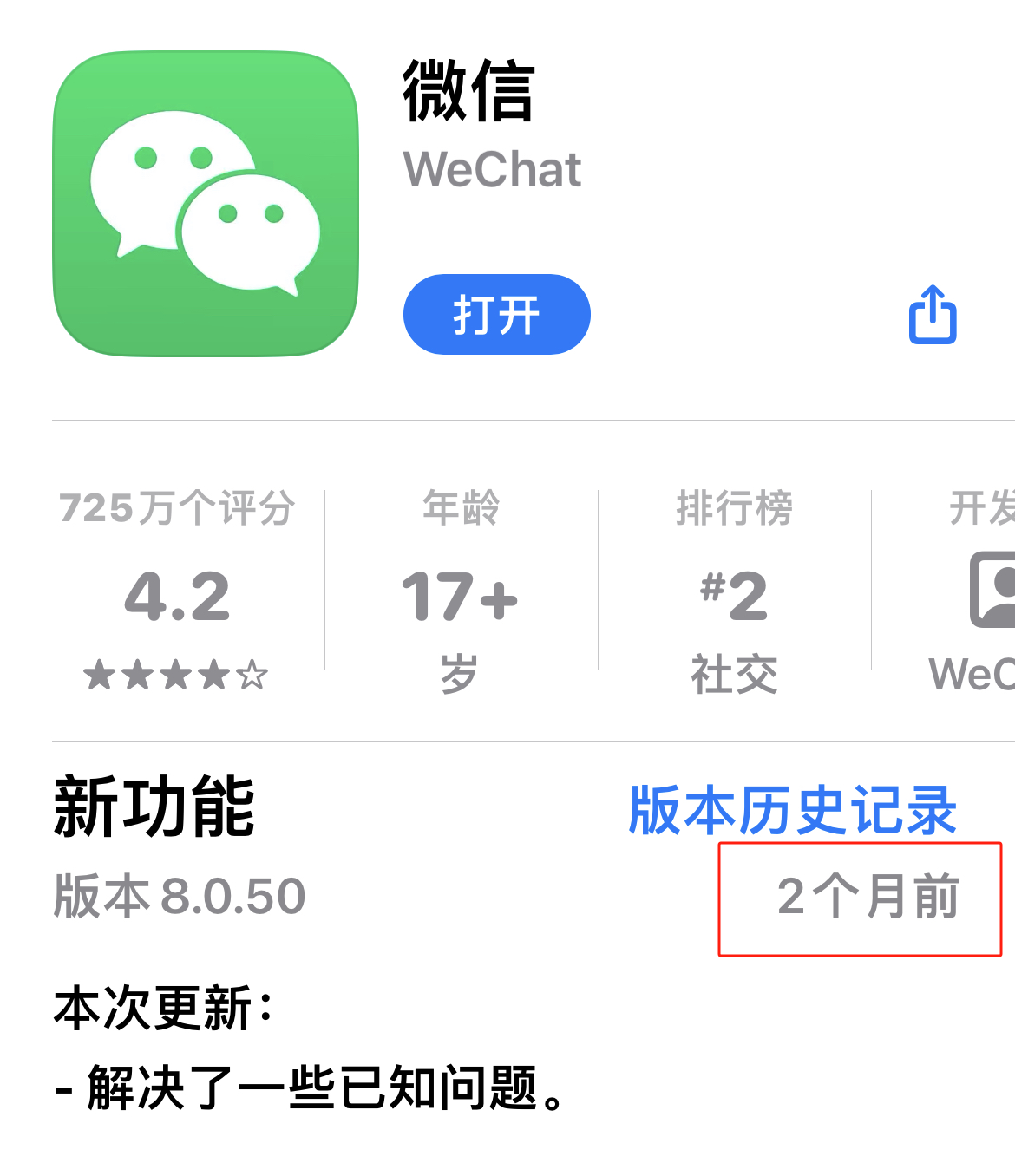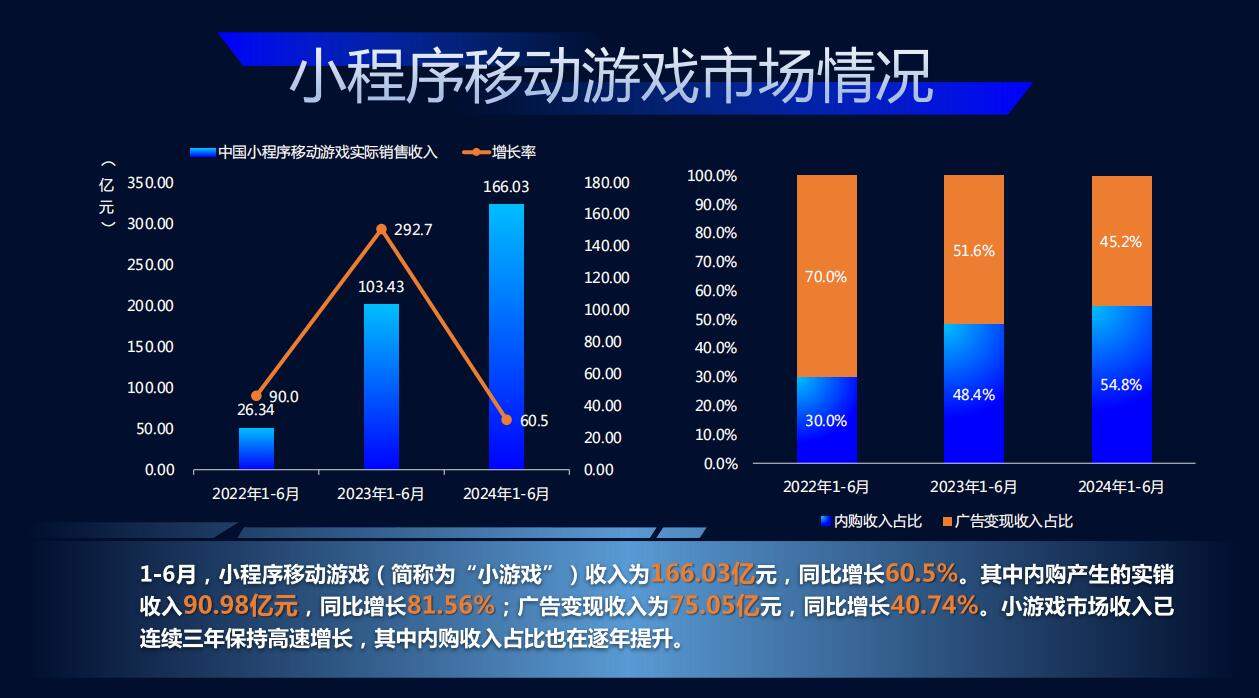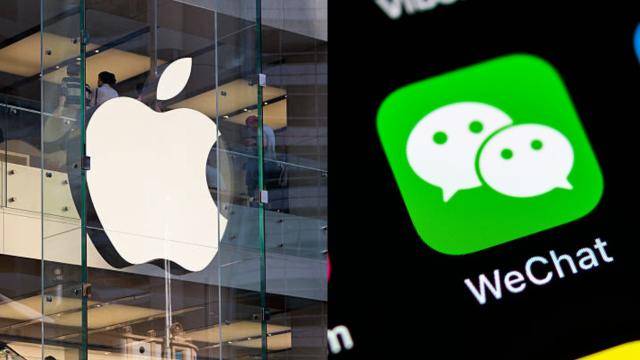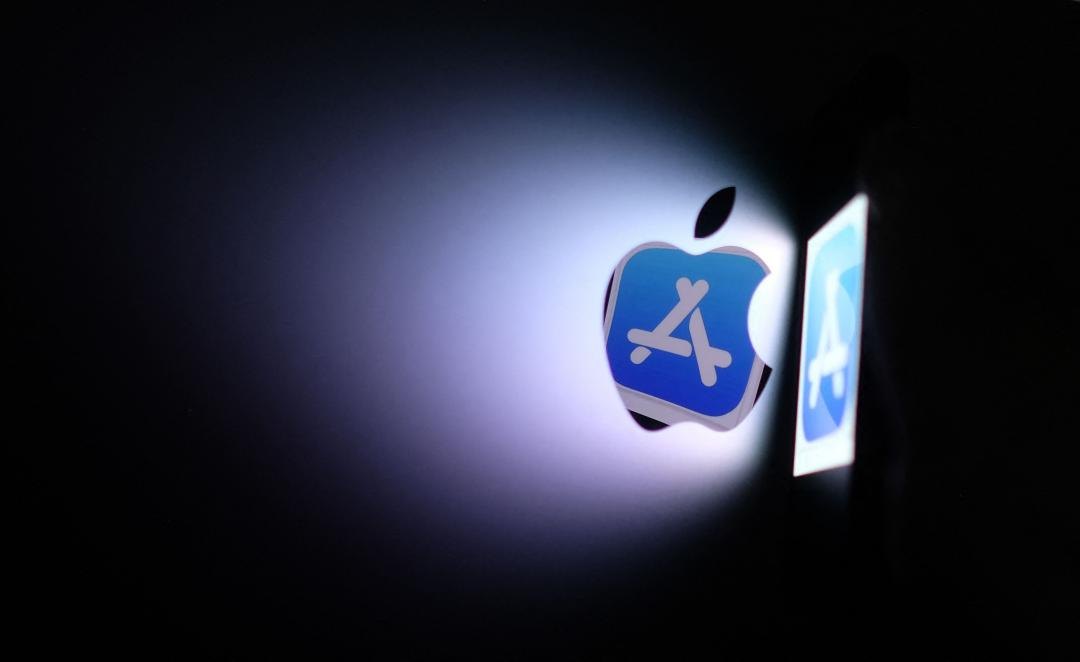Apple WeChat "Separation" False, iPhone Users Suffer "Apple Tax" for Long
Regarding the recent rumors that "iPhone 16 may not support WeChat", Apple and Tencent have both refuted the rumors, saying that the incident is not true.
Recently, there have been rumors that "iPhone 16 may not support WeChat," suggesting that once the system is upgraded to iOS 18.2, WeChat will become unusable. This has sparked market speculation about a potential "WeChat versus Apple" scenario.
According to statistics, there are over 1 billion users of WeChat in China. Some internet users have commented, "If WeChat and Apple compete, I don't think Apple can win. WeChat is irreplaceable, and Apple can be easily replaced."
In August this year, it was reported that Apple is considering imposing an "Apple Tax" on WeChat and Douyin, stating that the company is increasing pressure on Tencent and ByteDance to enforce a 30% "Apple Tax" on WeChat's ecosystem. Apple is also demanding that the two companies address payment loopholes in WeChat and Douyin to prevent developers from directing users to external payment systems.
Apple has warned Tencent that if it does not eliminate the capability for developers and users to bypass the Apple ecosystem, it will refuse to provide updates for WeChat in the future. Apple users have already noticed that WeChat has not been updated for two months.

The core of the current dispute centers around mini-games.
Initially, the primary monetization model for mini-games was advertising, with users being able to play instantly without downloading or installing. However, as mini-games have grown, in-game purchases for items and virtual currencies have emerged.
The "2024 China Game Industry Report" highlights that in the first half of this year, the actual sales revenue of the domestic game market was 147.267 billion yuan, a 2.08% year-on-year increase. Among this, the total revenue from mini-program mobile games was 16.603 billion yuan, accounting for 11.27% of the market, with a year-on-year increase of 60.5%. WeChat dominates the mini-program game sector.

In the Apple ecosystem, applications can only be downloaded through the App Store and in-app purchases can only be made via Apple's payment system, which charges a pre-agreed commission.
However, some mini-programs (mini-games) have circumvented this route, significantly reducing Apple's revenue in this field. The essence of this warning is Apple's attempt to maintain its App Store operating rules and business model.
In the Q2 earnings report meeting this year, Tencent also responded for the first time, stating that the company does not commercialize mini-games on iOS through in-app purchases. Tencent is currently negotiating with Apple about the revenue sharing for WeChat mini-games.
Tencent's Chief Strategy Officer James Mitchell stated, "The company is considering providing in-app transaction services through Apple's iOS payment system. If an agreement is reached, Apple will receive a certain percentage of the revenue."
The core issue in the negotiations is the commission rate. Many mini-game developers are small to medium-sized enterprises, with over 80% having teams of fewer than 30 people and profit margins below 12%. A 30% commission would place a heavy burden on these companies, and WeChat aims to protect the interests of small and medium-sized developers.
Tencent expressed hope to achieve commercialization under economically sustainable and fair conditions, with ongoing discussions aimed at achieving a "win-win-win" outcome.

In response, Apple's technical advisor in China stated that WeChat is one of Apple's very commonly used apps, and new iPhones will not revoke the app permissions that customers previously used normally. There is no official notification yet regarding the claim that iPhone 16 will not support WeChat. Whether iOS systems or Apple devices can continue to use WeChat, including whether WeChat can continue to be listed and downloaded on the Apple App Store, will depend on further communication and discussions between Apple and Tencent.
The advisor also mentioned that developers may need to pay a fee to Apple to list or download software on the App Store.
Tencent staff also stated, "No such news has been received for now."

In fact, regarding the issue of "Apple Tax," developers have never given up on seeking "reduced" or "exempt" fees. Spotify and Epic Games have previously negotiated with Apple on this issue.
In March of this year, the EU fined Apple 1.84 billion euros for its monopoly behavior, which was eventually settled with Apple implementing "tax reductions" in the EU region.
On September 4, Microsoft again publicly criticized the 30% "Apple Tax," calling it "neither economic nor reasonable." Additionally, according to Apple's regulations, app developers are not allowed to charge iPhone users additional fees to offset losses, making it impossible to monetize cloud gaming services on iOS.
A market study conducted by the CMA on mobile ecosystems shows that Apple's 30% fee is due to a lack of competition in the distribution of native iOS apps. In most markets, Apple still does not allow third-party app stores to "side-load" or install apps.
Apple's fall 2024 product launch event will be held next Tuesday (September 10), where the latest iPhone 16 series will be unveiled. Analysts predict that the price of the iPhone 16 series may increase across the board due to the addition of more artificial intelligence features.
·Original
Disclaimer: The views in this article are from the original Creator and do not represent the views or position of Hawk Insight. The content of the article is for reference, communication and learning only, and does not constitute investment advice. If it involves copyright issues, please contact us for deletion.